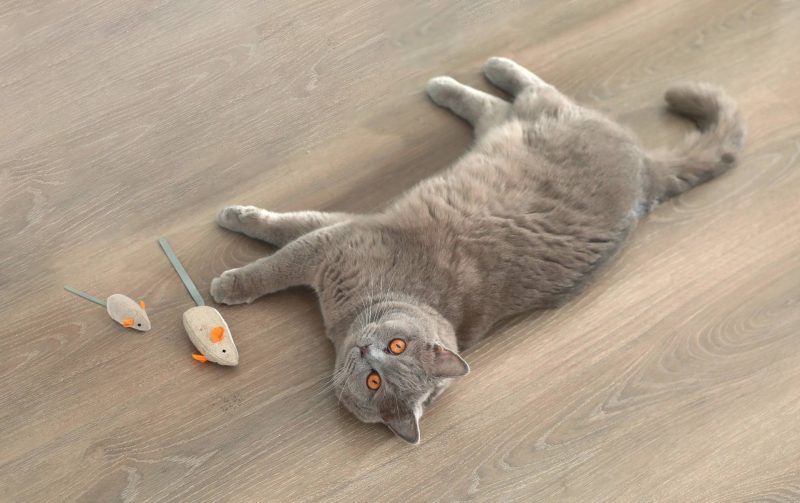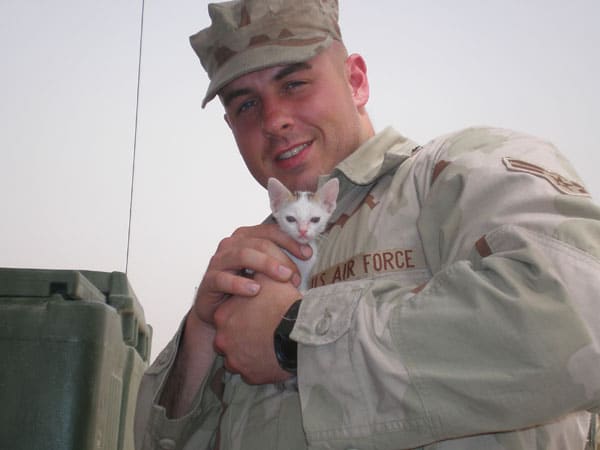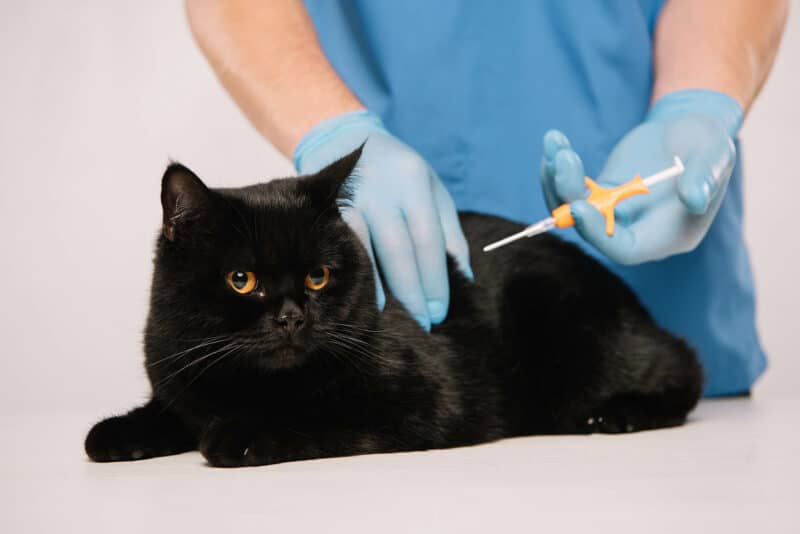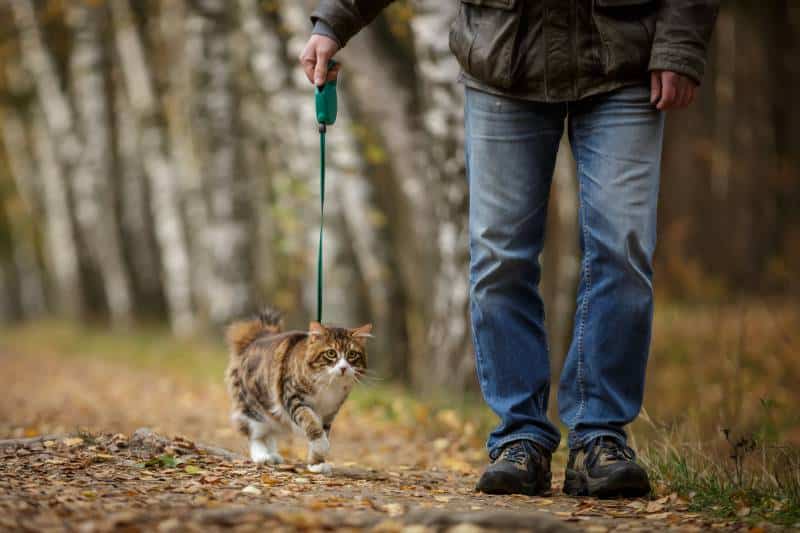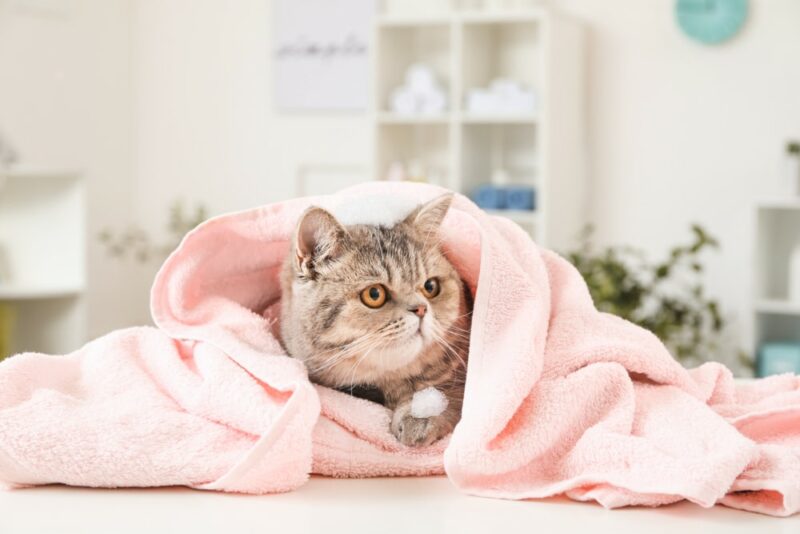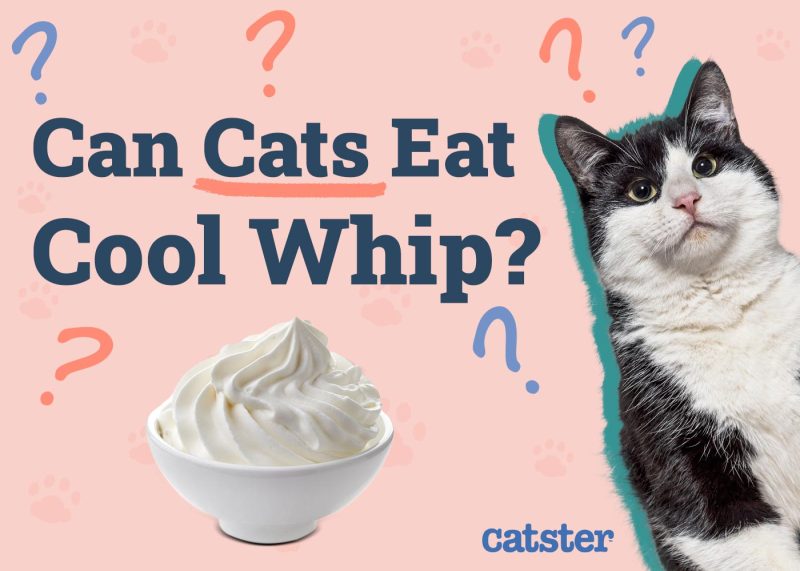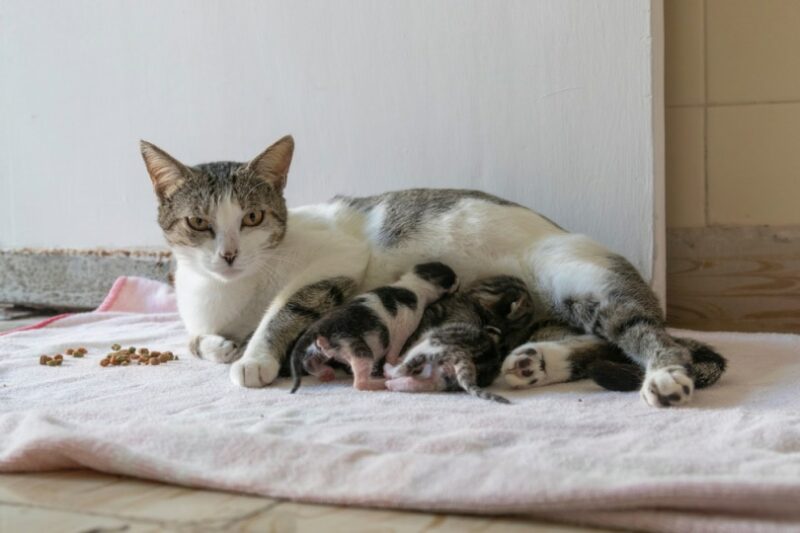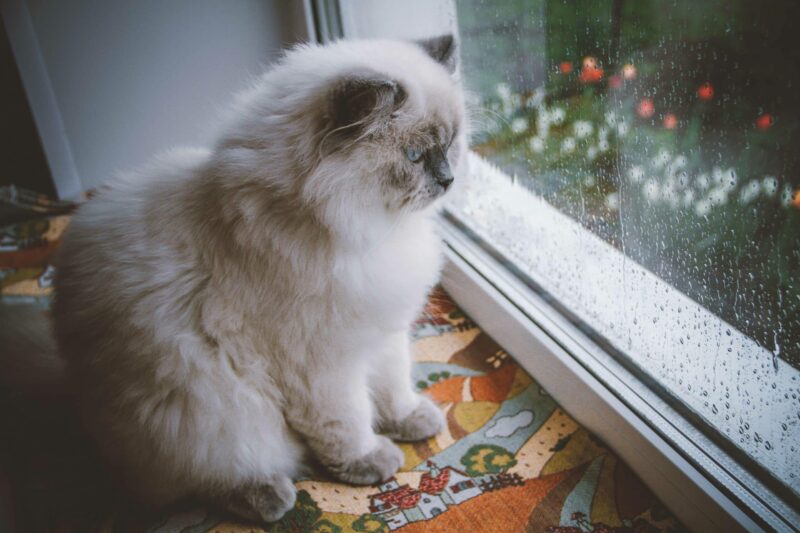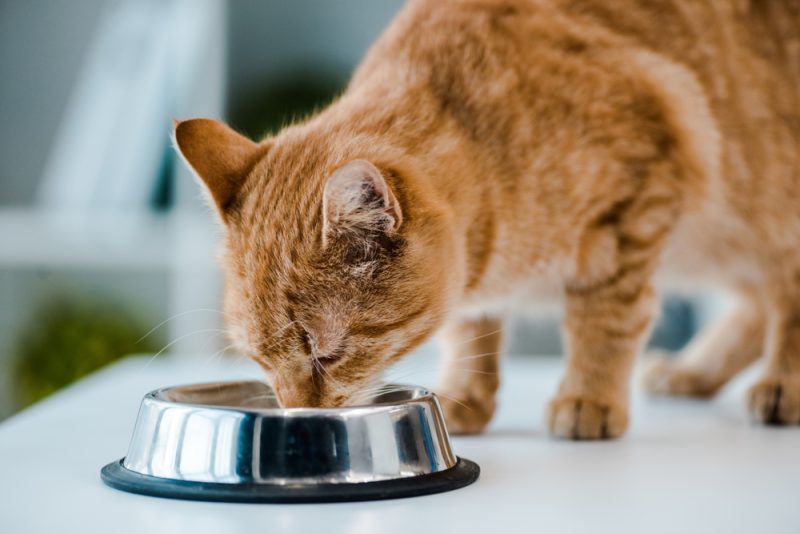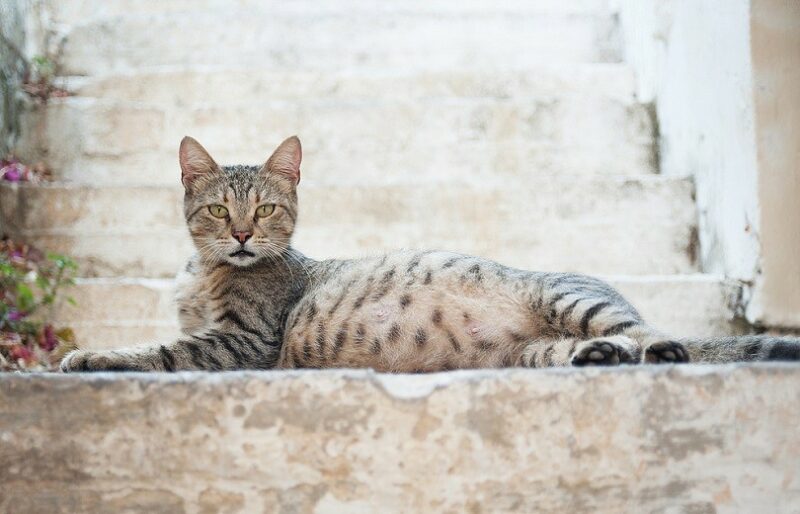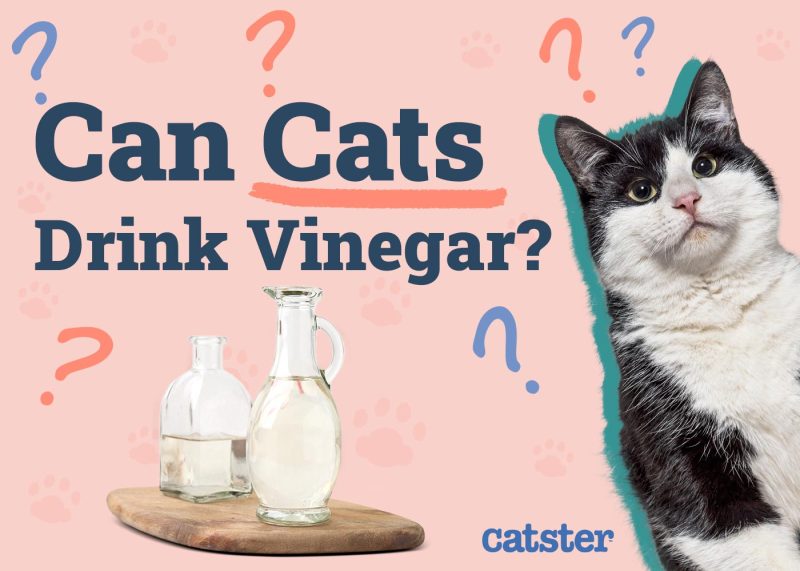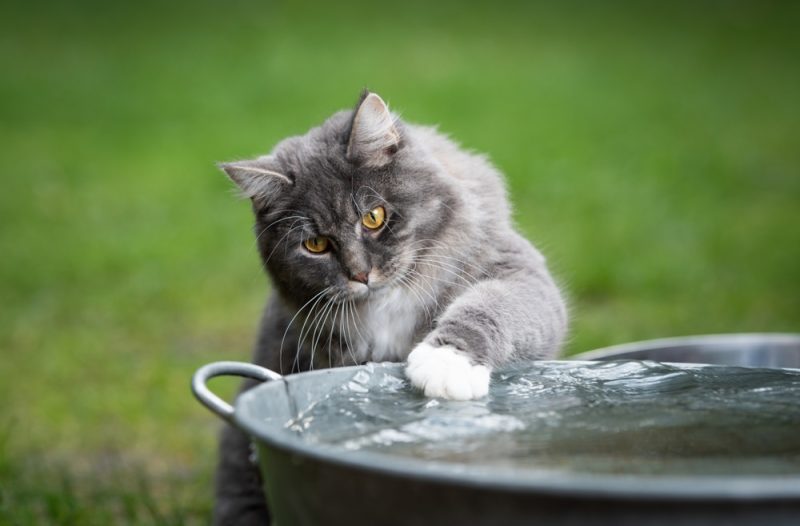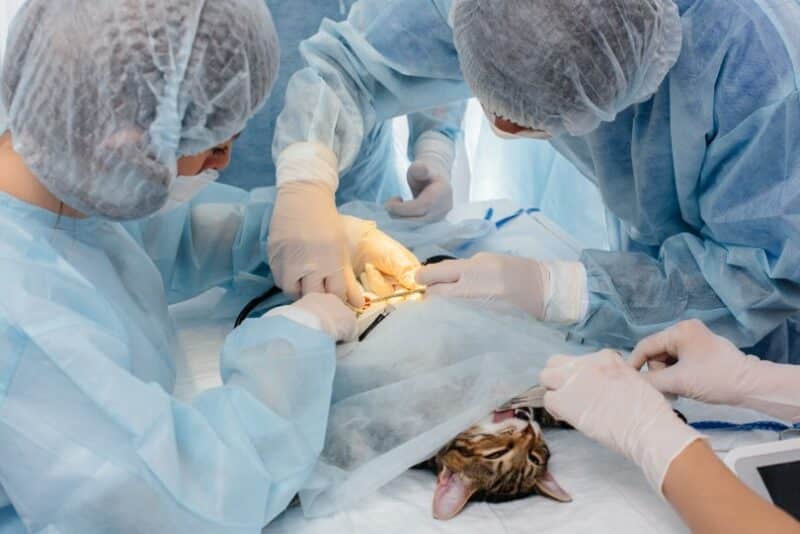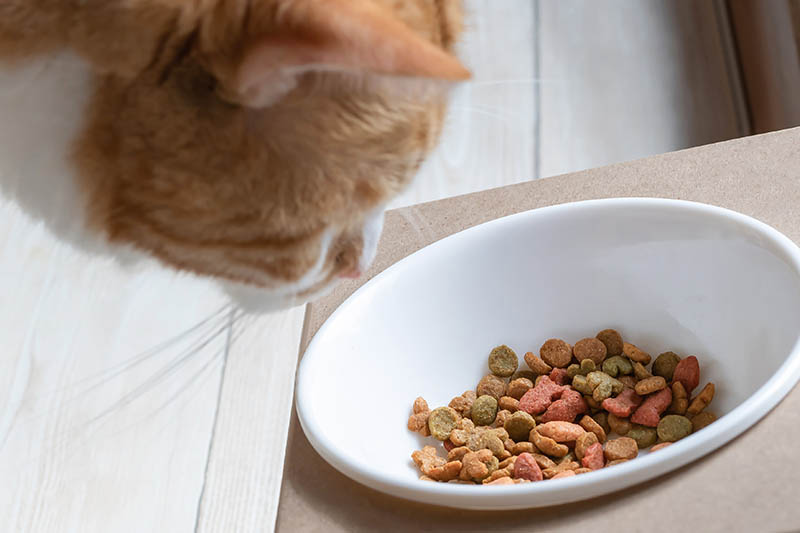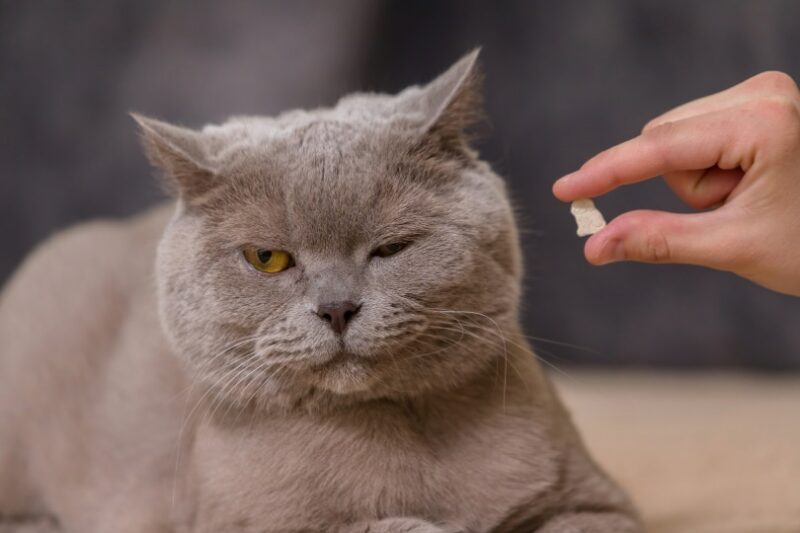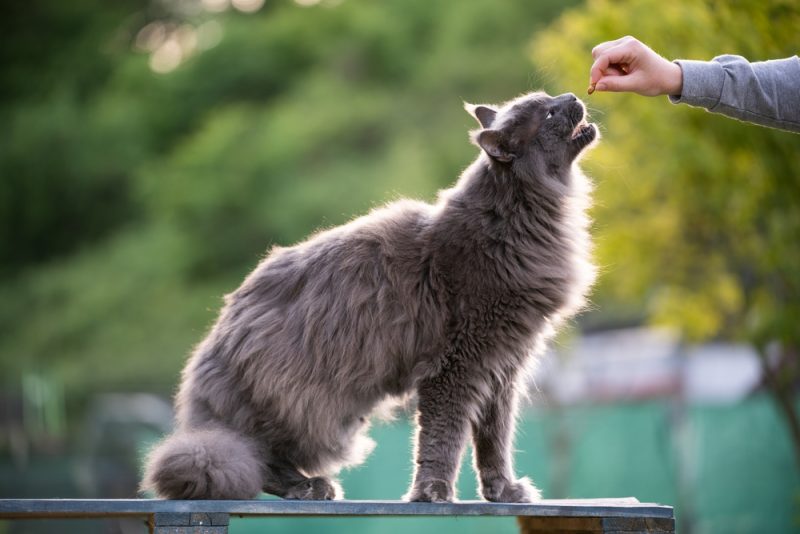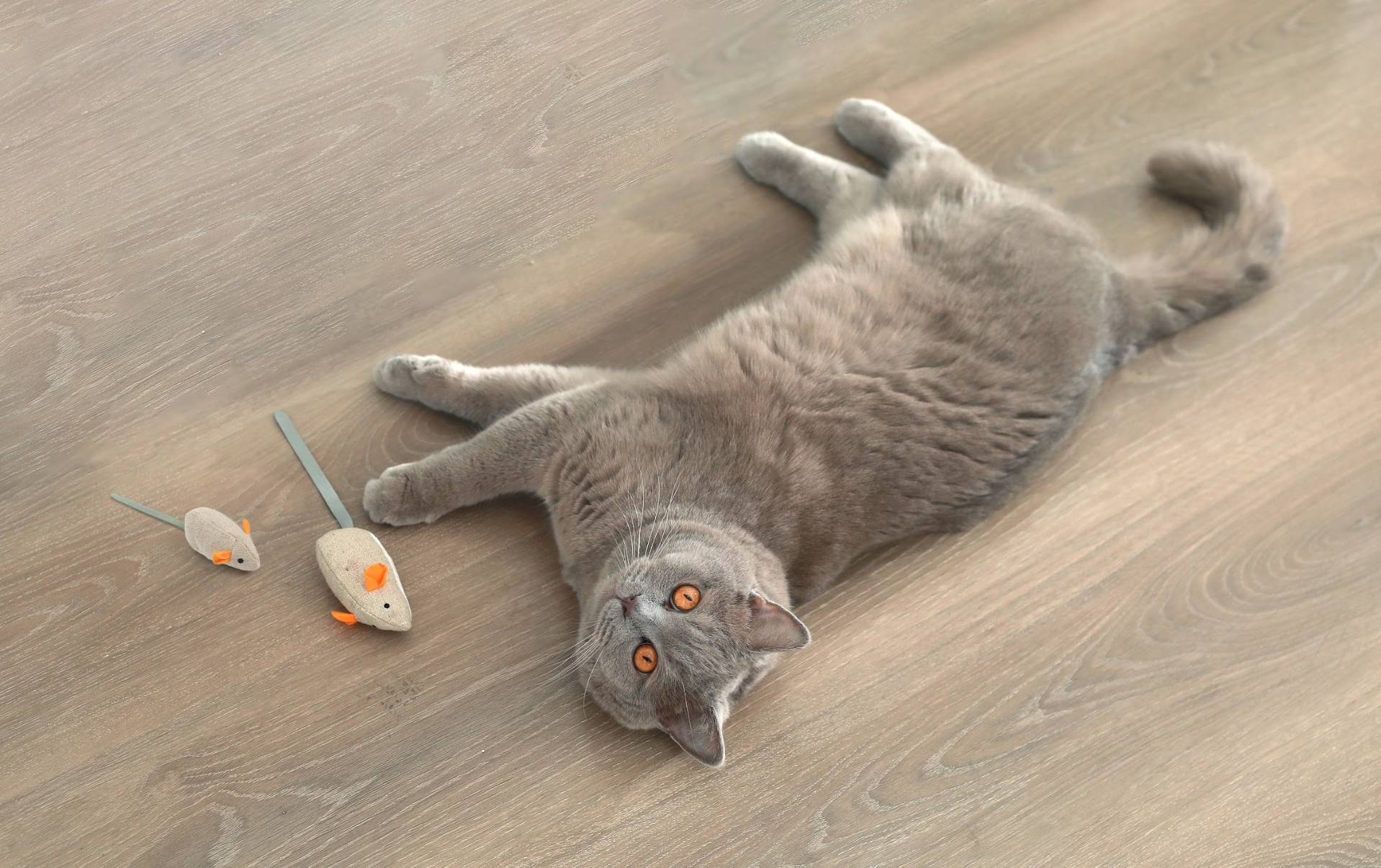
You’re also probably overwhelmed by the many choices you have for gifts for your cat. Our guide will show you what’s available for treating your pet to the best. We’ve also included reviews of some of our favorite products to make it a very merry Christmas for you and your kitty.
In this article

A Quick Comparison of Our Favorites in 2025
| Image | Product | Details | ||
|---|---|---|---|---|
| Best Overall |

|
Hepper Hi-Lo Cat Scratcher |
|
CHECK PRICE |
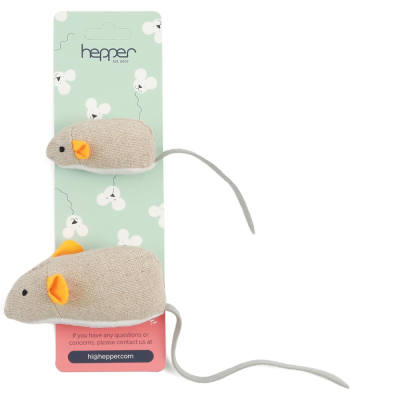
|
Hepper Mice Toy Set |
|
CHECK PRICE | |
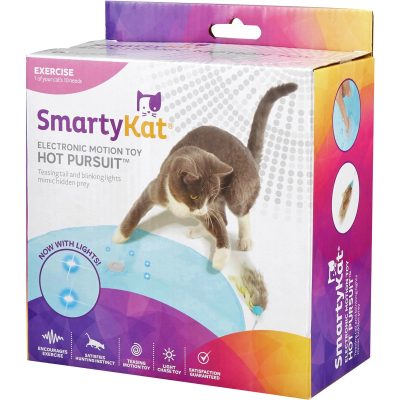
|
SmartyKat Concealed Motion Cat Toy |
|
CHECK PRICE | |
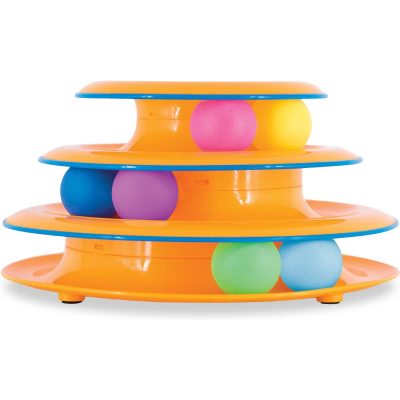
|
Petstages Tower of Tracks Cat Toy |
|
CHECK PRICE | |

|
Yeowww! Catnip Yellow Banana Cat Toy |
|
CHECK PRICE |
The 10 Best Christmas Gifts for Cats
1. Hepper Hi-lo Cat Scratcher – Best Overall
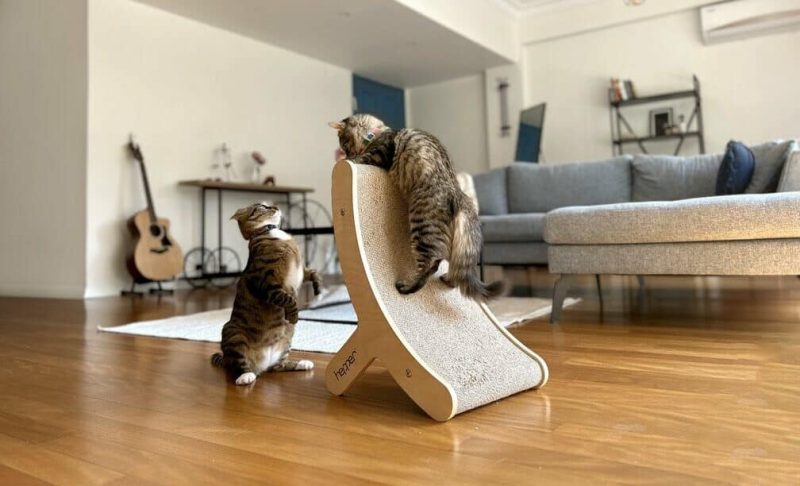
| Type: | Scratcher |
| Life Stage: | All |
| Special Features: | 3-angles |
| Usage: | Playgym, climbing, scratching |
The Hepper Hi-Lo Scratcher is a great way to allow your cat to scratch in more than one position. It’s made of high-quality plywood and dense cardboard that will last quite a long time! The birch frame has been coated in a non-toxic gloss and has a powder-coated metal core for added durability.
Since the scratcher can be put into three positions, your cat can use different parts of the scratching surface, thus extending the life of the cardboard. You can also order replacement cardboard to refill the frame.
This product is small enough to not take up much space, yet it’s large enough for your cat to stretch out for a good scratching session.
At Catster, we’ve admired Hepper for many years and decided to take a controlling ownership interest so that we could benefit from the outstanding designs of this cool cat company!
- High-quality birch frame
- Customizable positions
- Replacement cardboard available
- Only comes in one color
2. Hepper Mice Toy Set (Hessian)
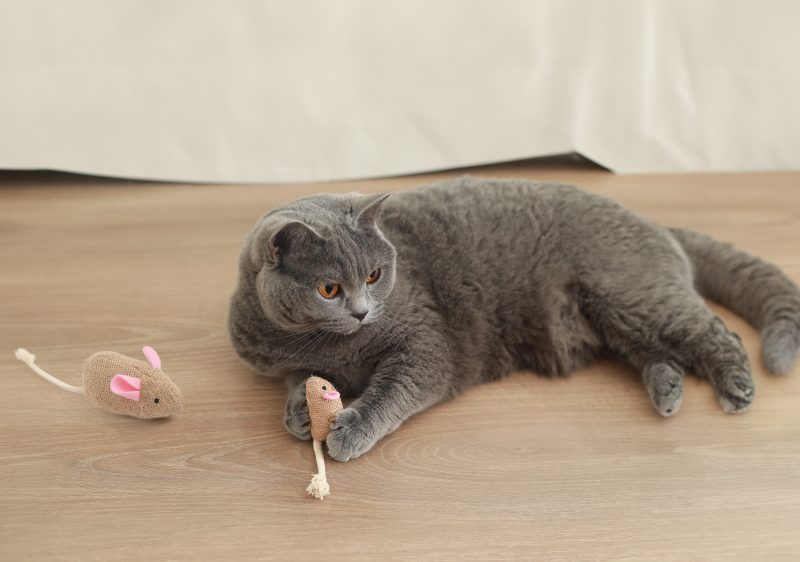
| Type: | Mice |
| Life Stage: | All |
| Special Features: | Hunting, pouncing |
| Usage: | Durable, lightweight |
The Hepper Mice Toy Set includes two mice, one small and one large, made of durable hessian burlap. It’s perfect for kittens and adult cats! The mice are stuffed with cotton and premium catnip and have been carefully stitched for durability, so they should be able to handle your kitty’s rough play.
Keep in mind that while these mice are filled with catnip, you can’t replenish it after it loses its potency. But you can try a catnip spray if desired.
At Catster, we’ve admired Hepper for many years and decided to take a controlling ownership interest so that we could benefit from the outstanding designs of this cool cat company!
- Made of durable burlap
- Filled with catnip
- Can’t replenish catnip
3. SmartyKat Hot Pursuit Concealed Motion Cat Toy
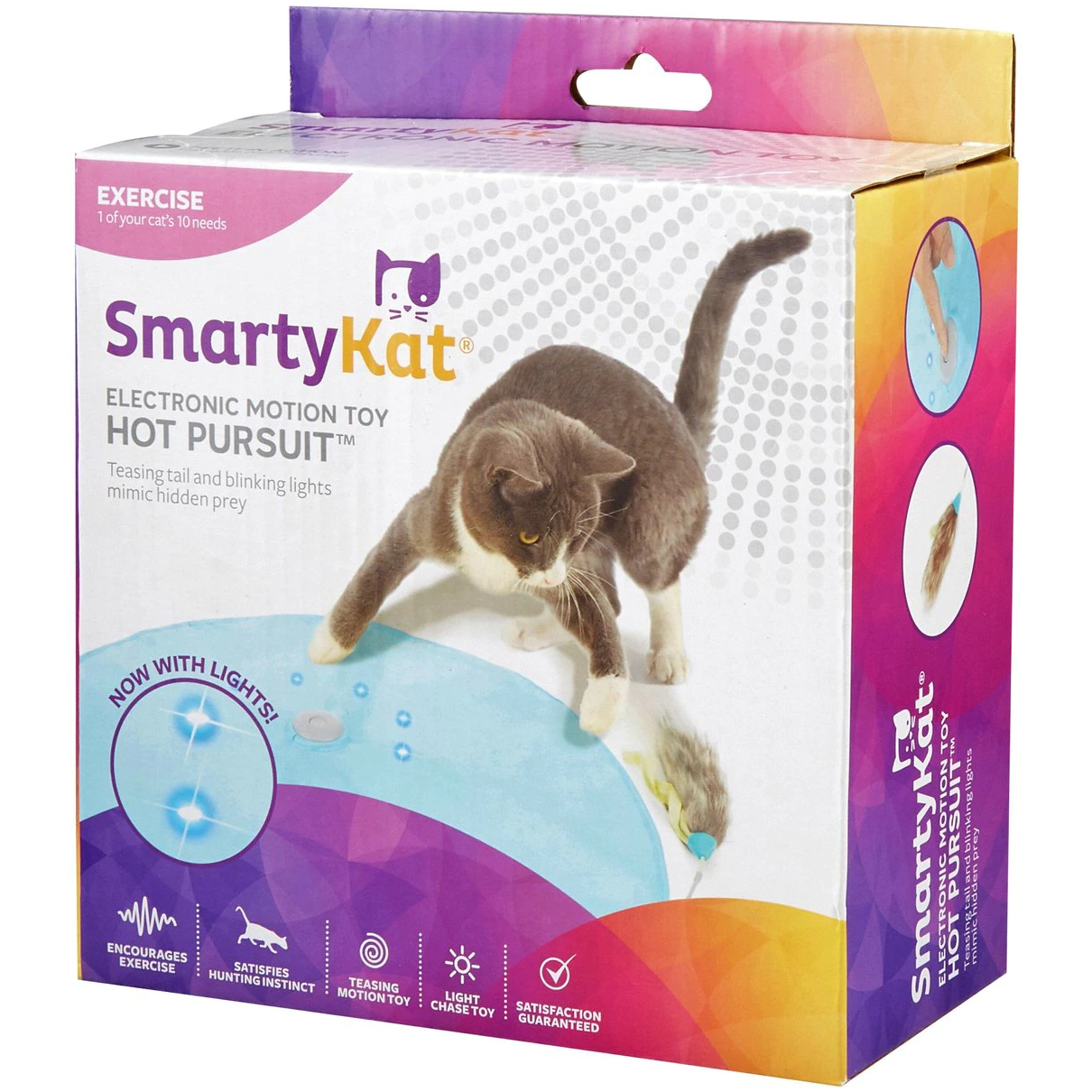
| Type: | Interactive |
| Life Stage: | Adult |
| Special Features: | Lighted, electronic |
| Usage: | 3 AA batteries |
The SmartyKat Hot Pursuit Concealed Motion Cat Toy is a fun way for your kitty to exercise. Even less playful pets will play with it, making it one of the best overall Christmas gifts for cats. A furry mouse toy pops in and out of the nylon cover, lighting up and making a show of it. A button on the top activates it in either slow or fast mode. The base isn’t loud and only makes a low humming noise.
The manufacturer categorizes it as an adult toy, but we think it’ll catch a kitten’s eye with no problem. The toy doesn’t have an auto turn-off feature. You’ll have to do it yourself when your cat walks away from it. Pets not declawed may catch the nylon cover and tip it. However, it looks like it could handle some serious playtime. Unfortunately, the company doesn’t make replacements.
- Exercise time
- Appealing to cats of all ages
- Locking battery chamber
- Two speeds
- No auto turn-off feature
- No replacements
4. Petstages Tower of Tracks Cat Toy
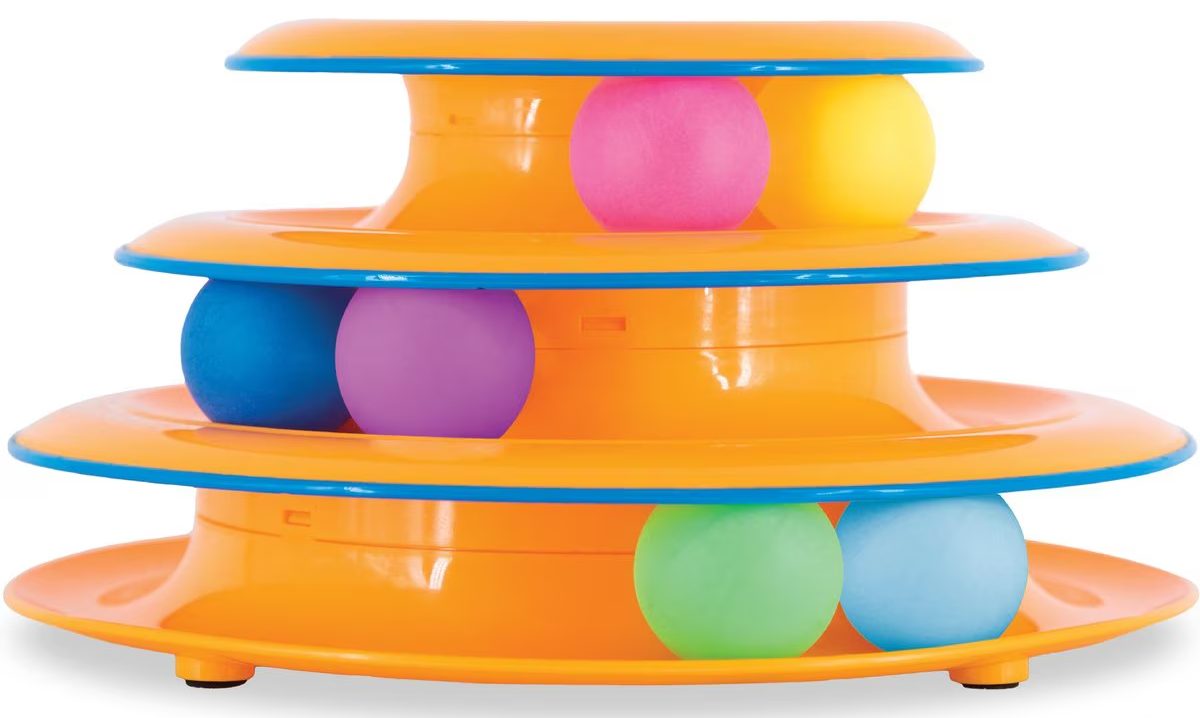
| Type: | Interactive |
| Life Stage: | Adult |
| Special Features: | Exercise |
| Usage: | Durable |
The Petstages Tower of Tracks 3 layer circle toy is an excellent choice for keeping your pet entertained for hours. It plays on your pet’s hunting instinct to find their prey. The ball inside of it spins, completing the effect. We think the sound of it going around the tube may also excite your cat. Even the choice of colors is brilliant. Most scientists theorize that felines can see only grays, yellows, and blues.
You may need to show your kitty how to use it the first time. Once the penny drops, your cat will take it from there. The tower is well-designed, making it nearly impossible for your pet to pop the ball out. However, it’s one of those toys you must occasionally rotate if your cat gets bored with it.
- Affordably priced
- Interactive component
- Well-designed
- Boredom after a while
5. Yeowww! Catnip Yellow Banana Cat Toy

| Type: | Plush |
| Life Stage: | Adult |
| Special Features: | Catnip |
| Usage: | Durable to a point |
The Yeowww! Catnip Yellow Banana Cat Toy is the perfect Christmas gift for the pet that has everything. It’s brightly colored, making it easy to spot. It is loaded with catnip to catch your cat’s attention. It’s a decent size, making it an excellent choice for larger felines. The chances are that all you need to do is put it in front of your cat. However, you can also use it interactively.
The design is adorable, making it an even better purchase. It’s made of cotton that will take a lot of abuse. However, we recommend checking it occasionally for rips and tears. We liked that the toy and the catnip are from the United States. The manufacturer goes the extra mile to ensure that it’s a quality product.
- USA-made
- Chock full of catnip
- Durable material
- Not refillable
6. Hepper Nest Cat Bed
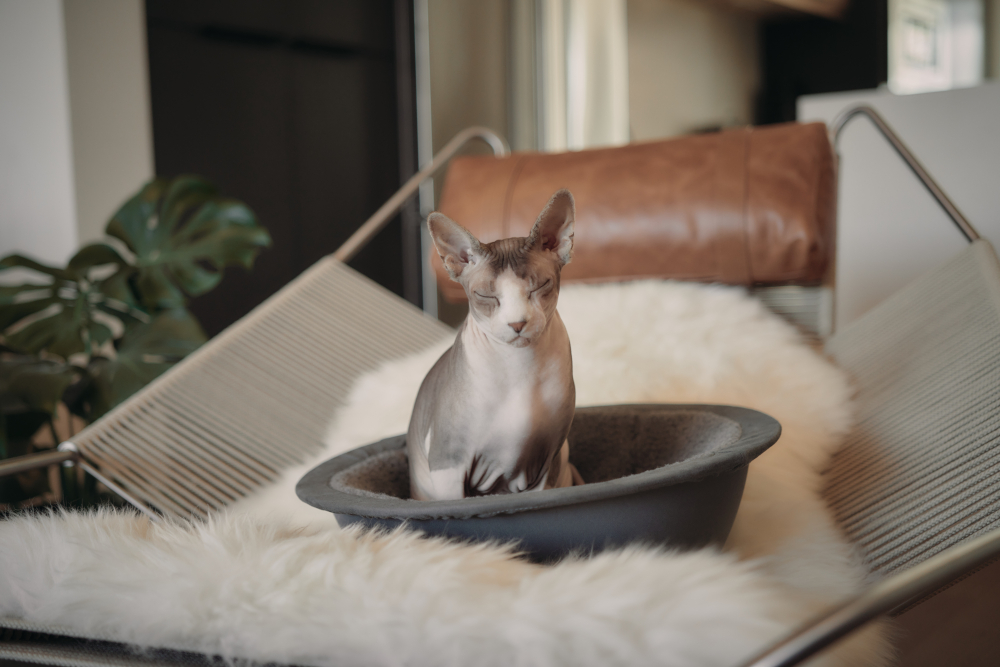
| Type: | Bed |
| Life Stage: | All |
| Special Features: | Removable, machine-washable liner |
| Usage: | Self-warming, supportive |
The Hepper Nest Bed is an adorable bowl-shaped bed, perfect for cats who want to curl up for a nap. The outside is made with flexible molded foam and has laminated fabric on top, and the inside is made with soft Sherpa fleece for extra coziness. The inside is a removable and machine-washable liner, and the exterior can be spot-cleaned or hand-washed.
It’s an attractive bed that comes in gray, pink, white, and herringbone. The sleeping area is 15 inches in diameter and 5.75 inches high, so it mainly fits small cats (though large cats will likely give it a go!).
At Catster, we’ve admired Hepper for many years and decided to take a controlling ownership interest so that we could benefit from the outstanding designs of this cool cat company!
- Flexible bowl design
- Sherpa fleece liner
- Removable and machine-washable liner
- Might be too small for large cats
7. Frisco Cactus Cat Scratching Post
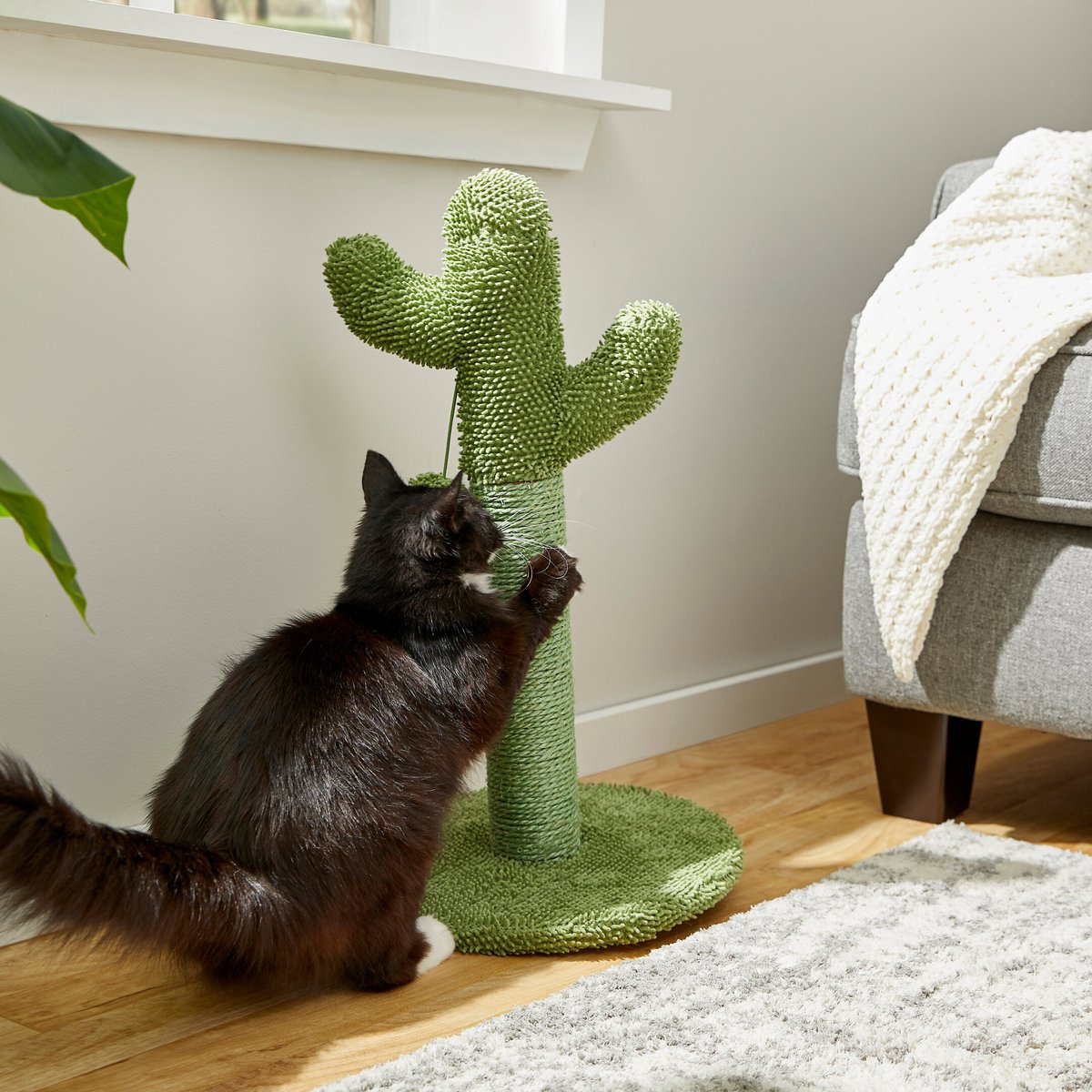
| Type: | Scratcher |
| Life Stage: | Adult |
| Special Features: | Hanging toys |
| Usage: | Stable base, moderately durable |
The Frisco Cactus Cat Scratching Post fits the bill if you’re looking for a smaller scratcher or a second one to redirect unwanted behavior. Besides, it’s so darn cute! It comes in two sizes, each with a stable, secure base. The post is covered primarily in sisal, with synthetic fabric and faux fur providing the decoration. The three arms are excellent places to hang toys to increase the fun and usage.
The materials shred easily, which is a desirable trait for your pet. It’s affordably priced, making replacing it a non-issue if you have an overzealous cat. It’s a snap to assemble, with the tools included with your purchase.
- Adorable design
- Value-priced
- Easy to assemble
- Shreds easily
8. Frisco Refillable Catnip Brown Squirrel Toy
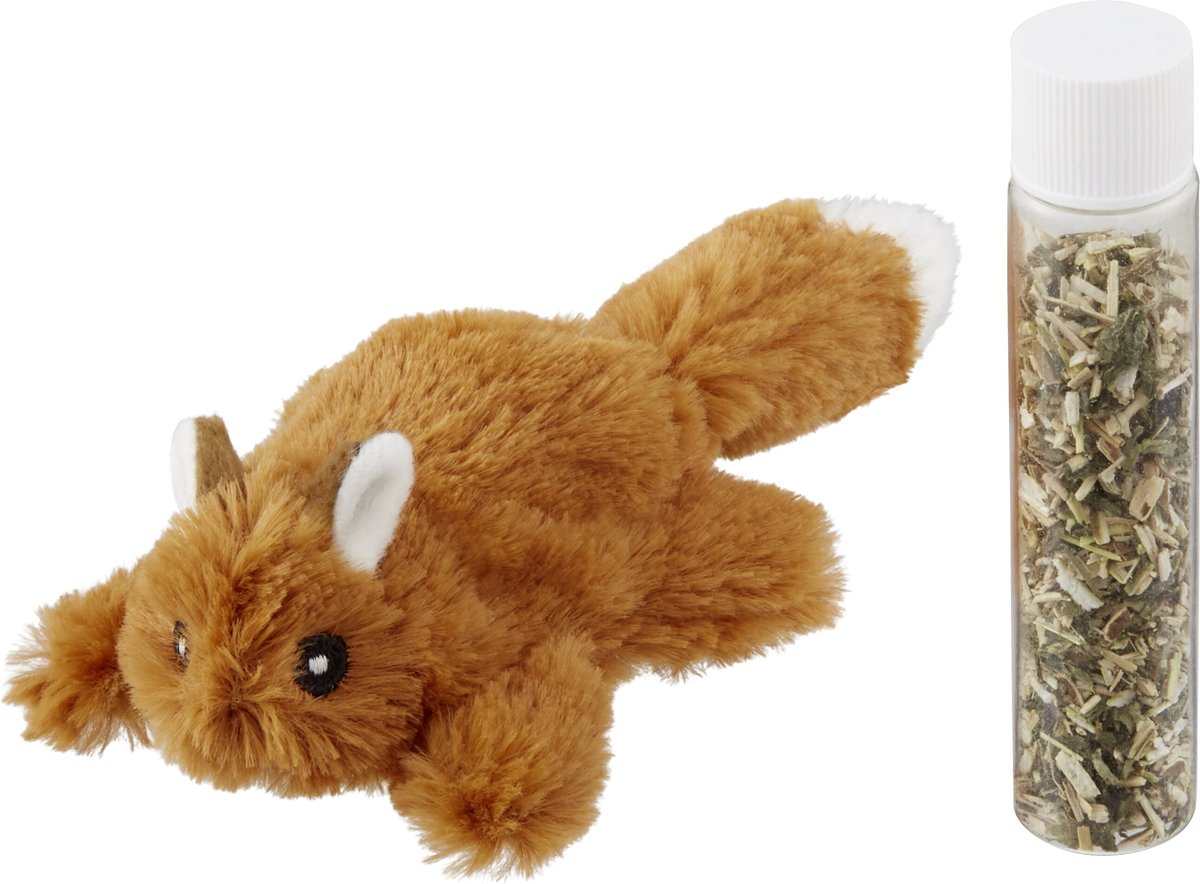
| Type: | Catnip |
| Life Stage: | Adult |
| Special Features: | Refillable |
| Usage: | Durable material |
The Frisco Refillable Catnip Brown Squirrel Toy is another toy that appeals to pet owners. You can’t help but smile when you see it. It’s well-made to handle a lot of playing, and it comes with a vial of catnip. You simply open the heavy-duty Velcro enclosure and fill it as necessary. Squeezing the toy will make the smell of the catnip more pungent.
The fact that it’s refillable is a solid selling point. Too often, cats lose interest in these toys because they lose their scent. The only problem we saw was catnip interfering with the Velcro closure, allowing some to leak out.
- Refillable
- Durable material
- Cute design
- Extra catnip
- Loose closure
9. Frisco Modern Elevated Wrought Iron Cat Bed

| Type: | Bed |
| Life Stage: | All |
| Special Features: | Elevated platform |
| Usage: | Sturdy with easy care |
The Frisco Modern Elevated Wrought Iron Cat Bed offers something that not many similar products do. It’s an attractive piece that will look great in almost any room. It’s also sturdy for pets up to 15 pounds. Its beauty is its simplicity. Some pet products cross the line to kitschy. This one doesn’t. The bed is made of faux fur, which you can machine wash.
The bed comes in single and dual-tier options, with the latter requiring some assembly. The bed feels comfy and comes in a pleasing neutral color. While we liked the design, we would understand some cats not taking to it without some persuasion, such as catnip.
- Built to last
- Attractive design
- Easy to clean
- Not used by some cats
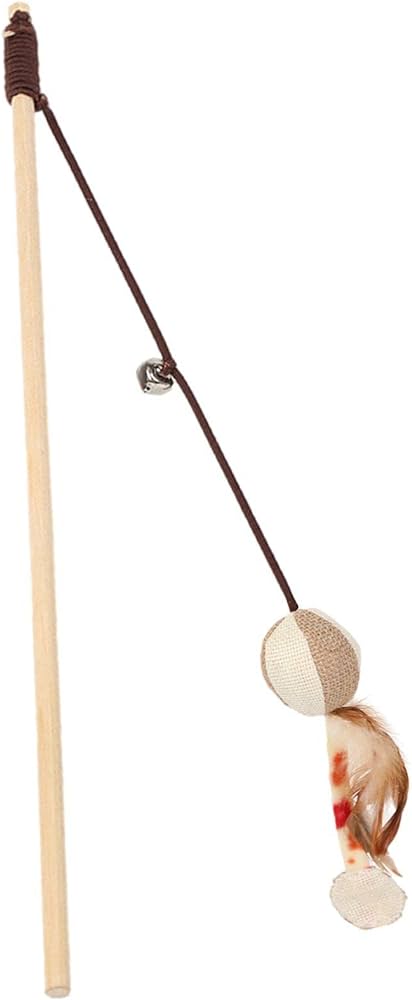
| Type: | Wand |
| Life Stage: | All |
| Special Features: | Feathers, exercise |
| Usage: | Limited durability |
Given how popular they are with pet owners, we’d be remiss if we didn’t include at least one wand. The Frisco Sparkle Ball Glitter Teaser Cat Toy has bells and whistles to attract your kitty’s attention. The feathers and metallic colors will entice your pet to play. It’s strictly an interactive toy that provides ample mental stimulation and bonding time.
There’s no doubt your cat will like this wand, and even kittens will enjoy it. They’ll get plenty of exercise when you wave it around the room. Your pet will likely wear you out before they run out of steam. The only drawback is one we often see with these toys: a weak string. A tenacious pet or a cat that plays rough will probably break it.
- Exercise time
- Interactive toy
- Suitable for all life stages
- Weak string

Buyer’s Guide: Picking the Best Christmas Gift for Your Cat
Since many consider their pets like children, it’s only fitting we’d concentrate on toys for Christmas. However, your cat is still likely to enjoy some treats or catnip, too. The first thing you’ll notice when looking for a gift is the many types and products available. The humanization of the pet market has been a boon for our animal companions. You have more choices than ever to provide your cat with fun and mental stimulation.
The latter is a welcome development since felines are intelligent animals. Sitting at home all day can get boring for them. Most cats don’t go on daily walks. That’s where toys come into play. They also provide excellent ways to reinforce your bond with your pet. Things to consider when choosing toys for your cat include:
- Type
- Life stage
- Special features
- Usage
Type
Cats used to get the short end of the stick when it came to the different types of toys. A catnip mouse or ball was all there was from which to choose. As cat ownership increased, so too did the number of choices pet owners have. Some of the most popular kinds of toys include:
- Plush
- Tunnels
- Scratchers
- Feather toys
- Flavored toys
- Teaser wands
- Interactive toys
The last two are our favorites. They provide the most mental stimulation for your pet. The wands bring you into the picture, which is beneficial for both of you. You’ll also find products in any color, pattern, or theme. It’s just as much about attracting your attention as it is your kitty. It makes it fun for you if a particular toy can make you smile, too.
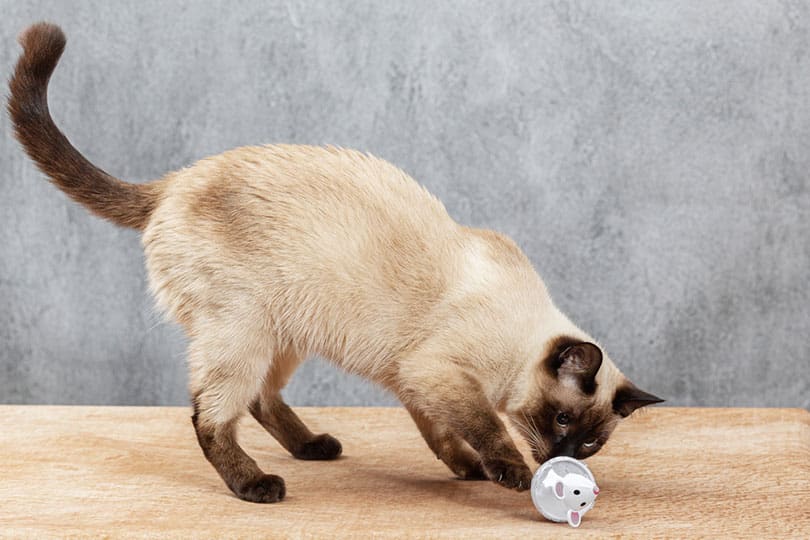
Life Stage
If you’ve ever watched Animal Planet’s Kitten Halftime Show, you know that the little ones are bundles of nonstop energy. Toys designed for kittens reflect this playful behavior. It doesn’t take a lot to get one rolling around with a new toy. It’s sometimes different with an older pet that may need a nudge to look twice at the one you bought.
You know your cat best. The design and action of a product will likely provide enough details to let you know whether it’s the right choice. The other factor to remember is your pet’s age. A kitten under 3 months old may not respond to catnip until they’re older. Some cats never react to it. Scientists know it’s an inherited trait that has no connection with sex, color, or breed.
Special Features
You’ll find products that light up, squeak, or bounce. You’ll see others made of feathers, foam, or faux fur. They may look surprisingly realistic or like a favorite movie or TV character. Some manufacturers use cat behavior to make their toys more interesting to pets.
Felines like to hide, which crosses species lines to leopards, tigers, and lions. That’s what makes tunnels, bags, and boxes so appealing. You may even find that your adult cat gets in touch with their inner kitten if you give them one of these toys.
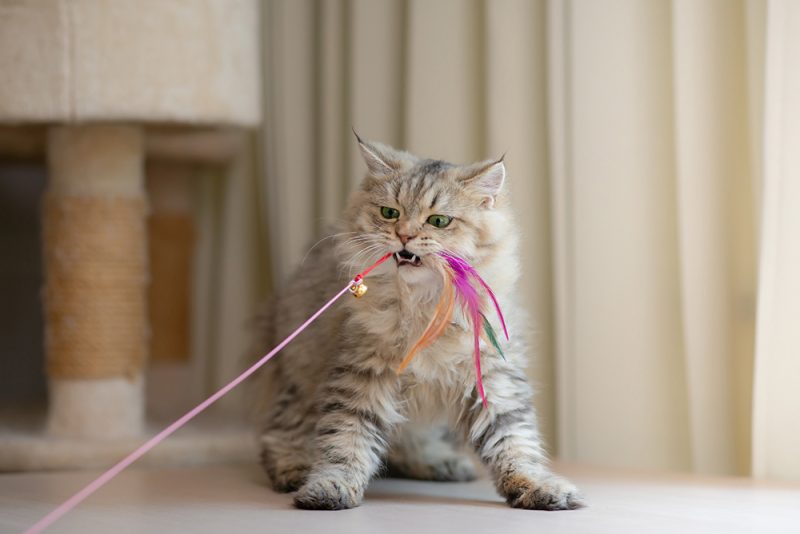
Usage
Usage covers several areas. You must consider the durability of a product if you want to get your money’s worth. Some cats are more destructive than others, which is a vital consideration if your pet chews things. The last thing you want from your cat’s Christmas gift is a trip to the emergency vet clinic to treat a bowel obstruction.
If you require urgent veterinary care you can consult a vet online.
If you need to speak with a vet but can't get to one, head over to PangoVet. It's an online service where you can talk to a vet online and get the advice you need for your pet — all at an affordable price!

We recommend occasionally inspecting a product for loose parts or threadbare cords with wands. The same advice applies to toys with feathers or catnip inside them. We discussed feline intelligence earlier. Cats need mental stimulation for a good quality of life. However, that trait comes with a price that many pet owners learn sooner or later.
They get bored with their toys, even the ones they played with constantly when you first gave them to your cats. We suggest swapping out your kitty’s toys once in a while if you notice this behavior. A few weeks out of sight will make your gift brand new again. Just make sure you have spare batteries on hand if it’s an electronic product.
How We Selected Our List of Christmas Gift Ideas for Cats
Catster has an experienced, expert team of writers, editors, and veterinarians who carefully consider a wide range of parameters when choosing the christmas gifts for cats. This includes but is not limited to customer reviews, brand reputation, veterinary experience, hands-on testing, and of course, our cats have a say in the process too! We aim to select and review only the best products available, to help you make the best possible choice and most informed decision for your and your cat’s needs.
Why Trust Catster?
A trusted online brand since 2001, Catster has a lot of experience with christmas gifts for cats. Our team of cat-loving writers, editors, and veterinarians is dedicated to helping you make the best decision for your precious cats. Our aim is to provide the best information available for cat owners to help cats live their best life possible. To do this, we scour reviews from the most trusted sources available and this, combined with our veterinary team’s experience and expertise, helps us gather the best options available to readers. Our team is deeply invested in the health and welfare of cats the world over, and believes that expert knowledge and veterinary guidance will help you make the right choices—for you and your cats!

Conclusion
The Hepper Mice Toy Set, filled with catnip, came out on top as our favorite Christmas gift for your cat. A great scratcher option is the Hepper Hi-Lo Scratcher made with high-quality material and replaceable cardboard. The SmartyKat Hot Pursuit Concealed Motion Cat Toy is great for exercising cats of all ages. It’ll entertain even an indifferent cat with its electronic motion toy.
The Petstages Tower of Tracks 3 layer circle toy is affordably priced and interactive. It’s lightweight and plays on your pet’s hunting instinct to find their prey.
